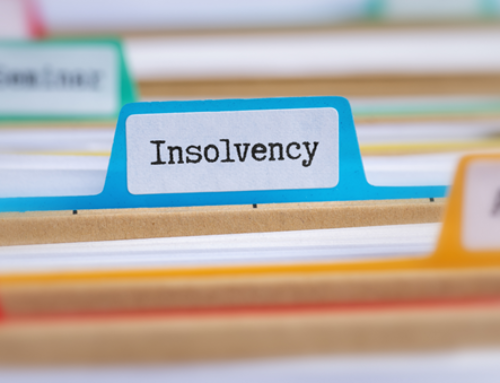So you’re a director? It’s an impressive-sounding title, bringing with it prestige and monetary reward. You may even have cracked open the champagne when you first became one.
But being a director also carries with it certain responsibilities. These become particularly significant if your business runs into financial difficulties.
What do you need to be aware of?
By becoming a director, you agreed to act in the best interests of the company, its shareholders, its employees and its creditors.
In times of financial difficulty, however, this ‘duty of care’ starts to shift. If there is a risk of insolvency, you need to be taking your creditors’ needs into account more than those of your shareholders.
So while you would normally have focused on promoting the success of the company, your chief concern becomes the interests of your creditors. You have a responsibility to minimise any potential loss to them. You also need to consider the needs of your creditors as a whole, i.e. not just the ones you deal with most frequently or the ones that are shouting the loudest.
What are your liabilities?
If you believe you are reaching an insolvent position, you must be careful to cease trading immediately. Failure to do so could result in an allegation of wrongful trading or the even more serious offence of fraudulent trading.
Wrongful trading is suspected if you knew or ought to have known that there was no reasonable prospect of avoiding liquidation and despite this did not make every effort to reduce any loss to your creditors.
The allegation changes to fraudulent trading, if directors are thought to have deliberately continued to deny creditors what they are owed. It then becomes a question of intent.
A balance sheet test is used to determine whether the value of your company’s assets is less than the amount of its liabilities. A creditor may also ask for a cash flow test to assess the solvency of your company based on whether it can pay its debts as they become due.
Simply saying that you were unaware of the seriousness of the situation is not acceptable, as it is part of your duty as a director to be aware of the financial situation at all times. Nor can a director just resign to avoid responsibility.
As a director you are also responsible for informing your employees of the state of affairs through notifications under employment and pension law.
What could the consequences be?
Wrongful trading is a civil offence while fraudulent trading is a criminal one.
If found guilty of wrongful trading, you could be held personally liable for company debts. You could also be at risk of being disqualified from being a director for up to 15 years.
Fraudulent trading is a criminal offence and can lead to a prison sentence, director disqualification and financial penalties.
If you find your company is running into financial difficulty, it is important to seek independent professional advice as early as possible. The issues are complex but our experienced advisers at DMC can help you navigate the minefield.
To have an informal chat and see how we can help, get in touch with us here.





